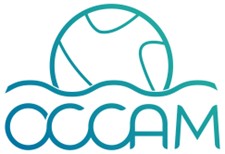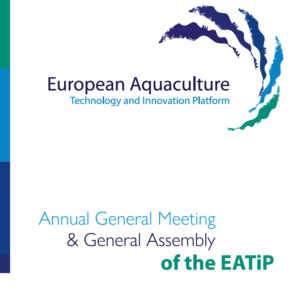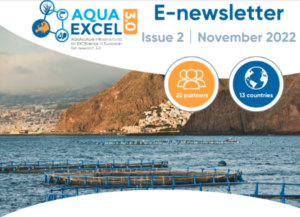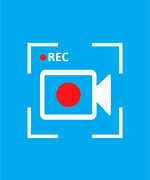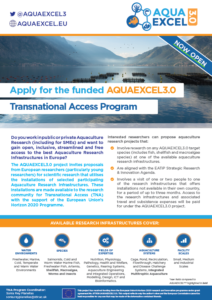EATIP Annual General Meeting 2025
/0 Comments/in _, AAM, AQUAEXCEL3.0, From EATIP Members, OLAMUR, Projects, S3 /by EATIPThe EATIP Annual General Meeting was held this year on the 17th & 18th of June 2025 in beautiful Norway House, in Brussels.
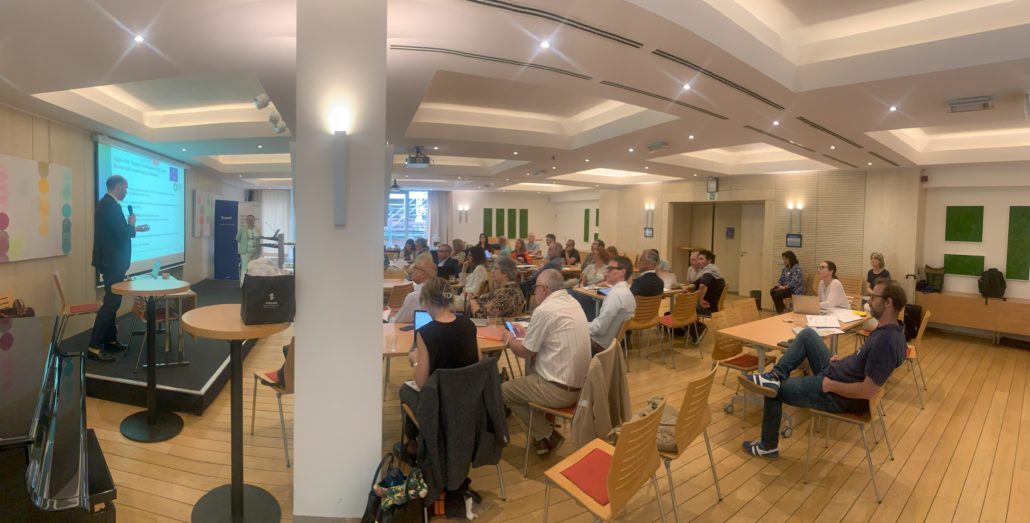
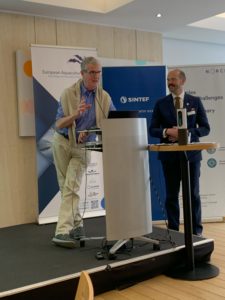
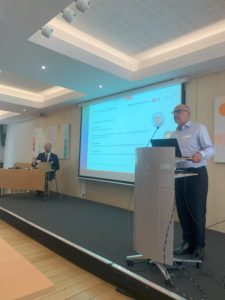
Annual General Meeting of the EATiP
/0 Comments/in _, AQUAEXCEL3.0, Events, Members, MIPs, Projects /by Catherine PonsThe EATIP AGM was successfully held in Brussels on the 14th & 15th of June 2023 at the Manos Conference Center & Hotel.
Please see below the programme of the event:
The presentations are available for EATiP members on our intranet.
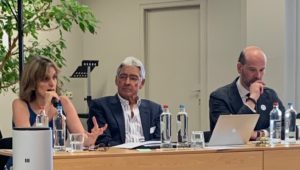
Lorella de la Cruz Iglesias (EC DG MARE), Gustavo Larrazábal (EATIP President), David Bassett (EATIP General Secretary)
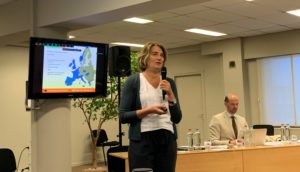
Alexandra Neyts (EATIP)
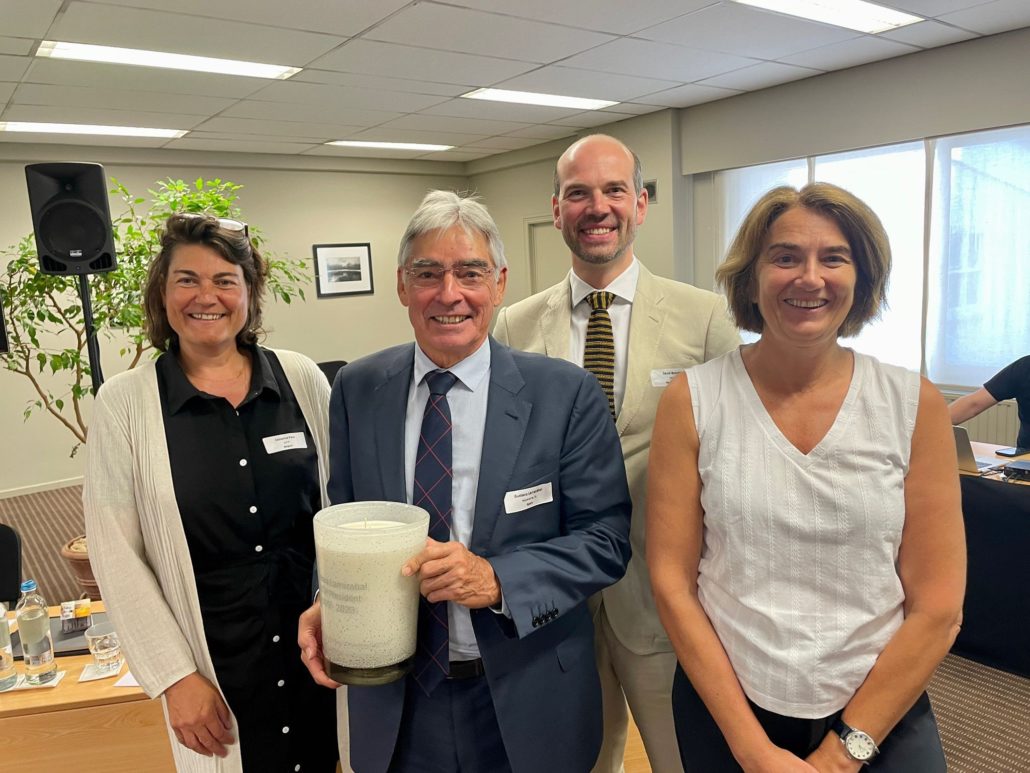
AQUAEXCEL3.0 Call for TransNational Access
/0 Comments/in _, AQUAEXCEL3.0, Projects /by EATIPApply for fully EC-funded access to top class aquaculture research infrastructures with AQUAEXCEL3.0
The AQUAEXCEL3.0 project unites major aquaculture experimental facilities with capacity to undertake experimental trials on a selection of commercially important aquaculture species and system types. These facilities are made available to the research community for Transnational Access (TNA) with the support of the European Union’s Horizon 2020 Framework Programme for Research and Technological Development (Infrastructures).
Transnational Access involves a research group in one country collaborating with one or more AQUAEXCEL3.0 Infrastructures that are located in a different country to the applicant, and which offer facilities and expertise not available in their own country. The collaboration normally takes the form of one or more scientists from the applicant organisation visiting the selected AQUAEXCEL3.0 installation to undertake research work there for up to 3 months. In some cases, remote access is also available (where the applicant is not present for some or all of the experimental period at the installation).
The facilities available cover the entire range of aquaculture production systems (recirculation, flowthrough, cage, hatchery and pond systems); environments (freshwater and marine, cold, temperate and warm water); scales (small, medium and industrial scale); culture species (fish, shellfish, seaweeds and insects); and fields of expertise (nutrition, physiology, health and welfare, genetics, engineering, monitoring and management technologies).
The overall objective of the project is to promote the coordinated use and development of these experimental facilities and encourage problem-based research and knowledge transfer to more effectively support the development of a sustainable European production of high-quality seafood with reduced environmental impact. The establishment of new transnational collaborations is strongly encouraged, as well as the participation by SMEs.
Applications for Transnational Access can be made at any time (continuously open call).
More details and to apply: see attached flyer, and https://aquaexcel.eu/transnational-access/
More information on each facility can be found here: https://aquaexcel.eu/resource-infrastructures/ and https://aquaexcel.eu/interactive-map/ – including pictures and videos of the facilities. Interested people with a project idea who need a little help finding the right facility can contact our orientation committee at aquaexcel-OC@inra.fr.
We also have a number of “success stories” from previous TNA users – https://aquaexcel.eu/videos/ and https://aquaexcel2020.eu/results (check out the Video and Innovative Outputs sections) which can be used as inspiration.
FEAP Award for Excellence in European Aquaculture 2023
/0 Comments/in _ /by David BassettWe are delighted to announce that our President – Gustavo Larrazábal, CEO of Aquanaria has been awarded the Federation of European Aquaculture Producers 2023 award for excellence in European Aquaculture during the FEAP General Assembly, this year hosted by the Federation of Maltese Aquaculture Producers in St Julians, Malta.
Noting during the speech in which the FEAP President, Lara Barazi-Geroulanou, presented the award was recognition of the very significant contribution Gustavo has made in the support and promotion of research and innovation in European aquaculture, primarily in the encouragement and support of EATiP and through his long service as our President.
The EATiP Board and membership extend our congratulations at this well deserved award, in recognition of the support and long service that Gustavo has given to so many and, in the case of EATiP, on a voluntary basis.
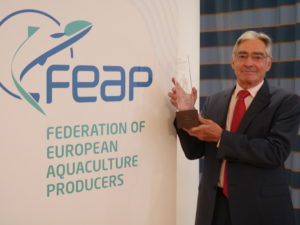
The EATiP President Gustavo Larrazábal with the FEAP Award for Excellence in European Aquaculture 2023
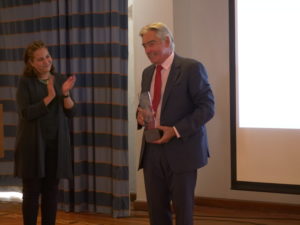
Presented with the award by the FEAP President, Lara Barazi-Geroulanou, during the 2023 General Assembly of the Federation of European Aquaculture Producers in St Julian’s, Malta.
Innovation Forum at Aquaculture Europe 2022
/0 Comments/in _, AQUAEXCEL3.0, EATIP Forum, EU, European Commission, Events, Projects /by Catherine PonsThe European Aquaculture Technology and Innovation Platform, the European Commission and the European Aquaculture Society organised on Thursday, September 29, at Aquaculture Europe 2022, Rimini the :

Aquaculture Europe 2022 Innovation Forum
“From Policy to Solutions”
Creating the correct circumstances for the successful uptake of innovation solutions across aquaculture value chains benefits from a methodological approach considering industry needs alongside strategic political and policy objectives, coupled with an understanding of appropriate delivery vehicles. Multiple knowledge transfer and facilitation routes, including platforms, projects, accelerators, and dissemination/education tools all have a key role to play in effective innovation transfer and capacity building.
The AE2022 Innovation Forum aimed at industry actors, policy makers, knowledge transfer experts, and those engaging in aquaculture knowledge development and collaboration, to inform how best to ensure meaningful knowledge & innovation transfer addressing research gaps and priorities for action whilst ensuring impact.
10:30 to 11:30 Part I. The Policy environment as a driver for Innovation Uptake
Moderated by David Bassett, EATiP
Short, focussed presentations with Q&A after each
- Global aquaculture policies as a lead for setting priorities nationally – Austin Stankus, FAO Fisheries and Aquaculture Division
- Implementing the Research and Innovation aspects of the Strategic Guidelines and the Aquaculture Assistance Mechanism for a more sustainable and competitive European Aquaculture – Lorella de la Cruz, European Commission, DG MARE
- A new approach for a sustainable Blue Economy – Blue farming within the Green Deal & Farm to Fork Strategies – Birgit Van Tongelen, European Commission DG MARE
- Mission Restore Our Ocean & Waters – Taking a Regional /Basin Approach – Nikos Zampoukas, European Commission DG RTD
11:30 to 12:30 Part II. The Building Blocks
Moderated by Mieke Eggermont, EATiP Mirror Platform Working Group
A panel-based discussion focussing on the available instruments and how they operate to facilitate the identification of needed innovations and mechanisms to maximise uptake.
Contributions from
- Interregional Innovation Investments (I3) smart specialisation platform(s) for Aquaculture – David Basset, EATiP
- EATiP Mirror Platforms: regional & national clusters:
- Ann Cecilie Hilling, NCE Aquaculture
- Yolanda Molares & Agustín I. López Gialdi, ACUIPLUS
- National Innovation Organisations – Øyvind E. Haga, Innovation Norway
- European Institute of Innovation & Technology – Mercedes Groba, EIT Food
12:30 to 14:30 Lunch (on your own) and visit to the AE2022 Trade Show
14.30 to 15:15 Part III. Facilitating the uptake
Moderated by Damian Toner, EAS
Following up to Part II, with a focus on concrete measures within the policy and building blocks of the previous sessions to present and discuss approaches, experiences and best practice.
- How to throw good money after good money: getting from public funding to the market – Ingeborg Korme, BlueBio Cofund
- Commercialising innovation in aquaculture: lessons from Hatch Blue – Chris Sworder, HATCH Blue
- Rethinking Communication, Dissemination and Exploitation (CDE) approaches for Industry Impact – Frederick Bruce, SUBMARINER Network
15:15 to 17:15 Part IV. Selected Case Studies
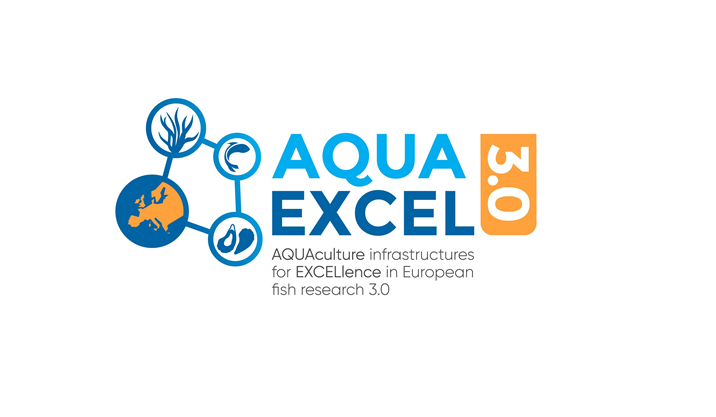
Moderated by Alexandra Neyts, AQUAEXCEL3.0
Selection of case studies with outputs leading to either increased TRL
or with high innovation potential.
AQUAEXCEL3.0 Transnational access high-impact outputs:
- Massimo Orioles: Red Mark Syndrome in rainbow trout: advances in diagnostics and management strategies
- Ricardo Ekmay: Beyond insect flour: use of Wood-Based Yeast SCP (single-cell protein) as an ingredient for Trout diets
- Hijran Yavuzcan: A novel welfare assessment tool for sea-caged European Seabass: the SWIM (Salmon Welfare Index Model) approach
- Raneesha De Fonseka: Triploid salmon: how salinity influences their growth and welfare
- Dinara Bekkozhayeva: No more tags: a novel method to identify fish by using their scale patterns
Discussion chaired by Kjell Maroni, FHF and member of AQUAEXCEL3.0 IRAP
Research-based industry innovations and start-ups:
- Industry innovations: Viking Aqua (AquaBioTech, Shane Hunter)
- Accelerators: Planktonic (Antonio Coli)
- Knowledge and Innovation Community: Next Tuna (Paul Sindilariu)
17:15 Wrap up – with the 4 moderators giving a short summary of their parts.
AQUAEXCEL3.0 Call for TransNational Access
/0 Comments/in _, AQUAEXCEL2020, AQUAEXCEL3.0, Projects /by Catherine PonsApply for fully EC-funded access to top class aquaculture research infrastructures with AQUAEXCEL3.0
The AQUAEXCEL3.0 project unites major aquaculture experimental facilities with capacity to undertake experimental trials on a selection of commercially important aquaculture species and system types. These facilities are made available to the research community for Transnational Access (TNA) with the support of the European Union’s Horizon 2020 Framework Programme for Research and Technological Development (Infrastructures).
Transnational Access involves a research group in one country collaborating with one or more AQUAEXCEL3.0 Infrastructures that are located in a different country to the applicant, and which offer facilities and expertise not available in their own country. The collaboration normally takes the form of one or more scientists from the applicant organisation visiting the selected AQUAEXCEL3.0 installation to undertake research work there for up to 3 months. In some cases, remote access is also available (where the applicant is not present for some or all of the experimental period at the installation).
The facilities available cover the entire range of aquaculture production systems (recirculation, flowthrough, cage, hatchery and pond systems); environments (freshwater and marine, cold, temperate and warm water); scales (small, medium and industrial scale); culture species (fish, shellfish, seaweeds and insects); and fields of expertise (nutrition, physiology, health and welfare, genetics, engineering, monitoring and management technologies).
The overall objective of the project is to promote the coordinated use and development of these experimental facilities and encourage problem-based research and knowledge transfer to more effectively support the development of a sustainable European production of high-quality seafood with reduced environmental impact. The establishment of new transnational collaborations is strongly encouraged, as well as the participation by SMEs.
Applications for Transnational Access can be made at any time (continuously open call).
More details and to apply: see attached flyer, and https://aquaexcel.eu/transnational-access/
More information on each facility can be found here: https://aquaexcel.eu/resource-infrastructures/ and https://aquaexcel.eu/interactive-map/ – including pictures and videos of the facilities. Interested people with a project idea who need a little help finding the right facility can contact our orientation committee at aquaexcel-OC@inra.fr.
We also have a number of “success stories” from previous TNA users – https://aquaexcel.eu/media-centre/ and https://aquaexcel2020.eu/results (check out the Video and Innovative Outputs sections) which can be used as inspiration.
AQUAEXCEL3.0 is a research infrastructure project funded under the EU’s Horizon 2020 programme and coordinated by the French National Institute for Agriculture, Food and Environment (INRAE). The project aims to further support the sustainable growth of the European aquaculture sector. For more details see the project website: https://aquaexcel.eu/
AQUAEXCEL3.0: Apply now
/0 Comments/in _, AQUAEXCEL3.0, Projects /by EATIPDo you work in public or private Aquaculture Research (including for SMEs) and want to gain open, inclusive, streamlined and free access to the best Aquaculture Research Infrastructures in Europe?
Apply now for fully EC-funded access to top class aquaculture research infrastructures with AQUAEXCEL3.0
The AQUAEXCEL3.0 project unites major aquaculture experimental facilities with capacity to undertake experimental trials on a selection of commercially important aquaculture species and system types. These facilities are made available to the research community for Transnational Access (TNA) with the support of the European Union’s Horizon 2020 Framework Programme for Research and Technological Development (Infrastructures).
Transnational Access involves a research group in one country collaborating with one or more AQUAEXCEL3.0 Infrastructures that are located in a different country to the applicant, and which offer facilities and expertise not available in their own country. The collaboration normally takes the form of one or more scientists from the applicant organisation visiting the selected AQUAEXCEL3.0 installation to undertake research work there for up to 3 months. In some cases, remote access is also available (where the applicant is not present for some or all of the experimental period at the installation).
The facilities available cover the entire range of aquaculture production systems (recirculation, flowthrough, cage, hatchery and pond systems); environments (freshwater and marine, cold, temperate and warm water); scales (small, medium and industrial scale); culture species (fish, shellfish, seaweeds and insects); and fields of expertise (nutrition, physiology, health and welfare, genetics, engineering, monitoring and management technologies).
The overall objective of the project is to promote the coordinated use and development of these experimental facilities and encourage problem-based research and knowledge transfer to more effectively support the development of a sustainable European production of high-quality seafood with reduced environmental impact. The establishment of new transnational collaborations is strongly encouraged, as well as the participation by SMEs.
Applications for Transnational Access can be made at any time (continuously open call).
More details and to apply: see attached flyer, and https://aquaexcel.eu/transnational-access/
More information on each facility can be found here: https://aquaexcel.eu/resource-infrastructures/ and https://aquaexcel.eu/interactive-map/ – including pictures and videos of the facilities. Interested people with a project idea who need a little help finding the right facility can contact our orientation committee at aquaexcel-OC@inra.fr.
We also have a number of “success stories” from previous TNA users – https://aquaexcel.eu/media-centre/ and https://aquaexcel2020.eu/results (check out the Video and Innovative Outputs sections) which can be used as inspiration.
AQUAEXCEL3.0 is a research infrastructure project funded under the EU’s Horizon 2020 programme and coordinated by the French National Institute for Agriculture, Food and Environment (INRAE). The project aims to further support the sustainable growth of the European aquaculture sector. For more details see the project website: https://aquaexcel.eu/
GENE EDITING
/0 Comments/in _, EATIP Forum, Projects /by EATIP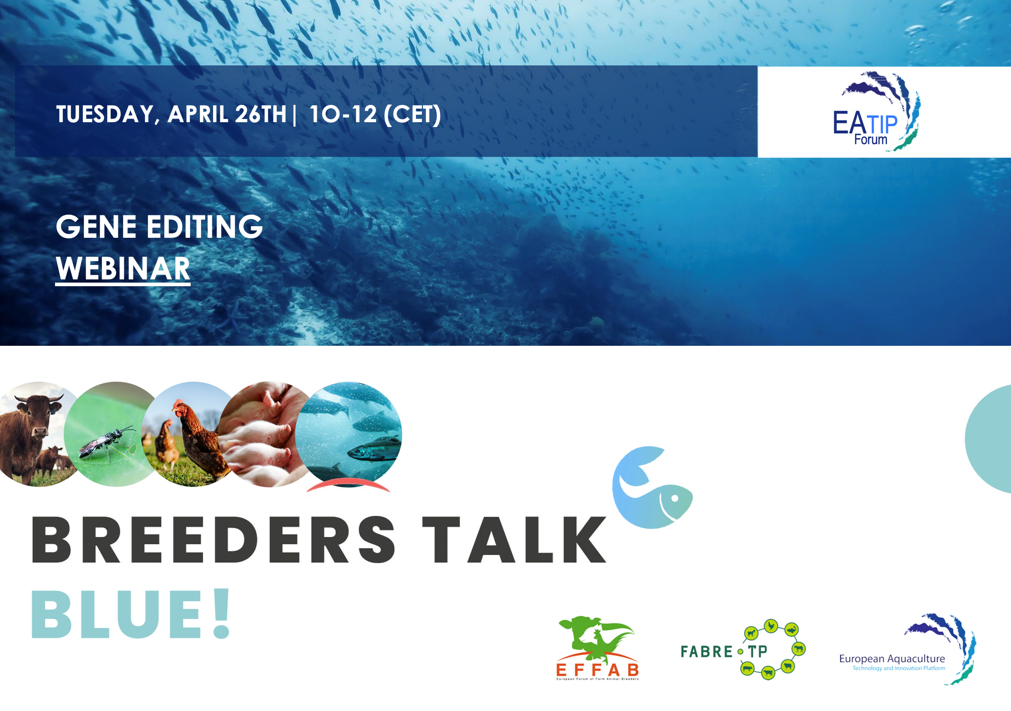
The webinar recordings and report are now available.
CRISPR-Cas9 is a specific gene editing methodology that allows genetic material to be altered at particular locations of the genome. This technology is fast, cheap, accurate and efficient, and provides a potential supplement to traditional breeding methods. Genome editing gained interest by the aquaculture community as it can contribute to increasing the sustainability of the sector through the production of more robust and/or sterile fish. So what exactly are the opportunities gene editing creates for aquaculture, are there any ethical concerns, and is the legislation on the verge of being more liberal when it comes to using this technique in the cultivation of food from the oceans?
EATiP Forum / Breeders Talk Blue event, was jointly organized EATiP and EFFAB-FABRE TP, on the potential and opportunities of Gene Editing in Aquaculture.
Various presentations from the European Commission, different scientists from renowned Institutes and private sector experts exchanged and discussed around the following topics:
- The use of gene editing technique (like CRISPRR-Cas9) to improve the breeders toolbox linked to specific applications, such as sterility, disease resistance..
- The link to exploring opportunities to adapt legislation
- Search for evidence and research gaps that help understand the safety of the technique
- Exploring the expectations of the sector and stakeholders, including concerns related to Animal Welfare
26 APRIL 2022
Agenda (10:00 – 12:00)
Welcoming address:
- David Bassett | EATiP and Ana Granados | EFFAB / FABRE TP
Opening talks
- Gene editing in Europe – a policy status, by Frank Swartenbroux | EC DG SANTE Biotechnology unit
- Gene editing – what is it about?, by Diego Robledo | Roslin Institute
Presentations
- Targeting sterility in fish, by Anna Wargelius | Institute of Marine Research
- Disease resistance, by Ross Houston | Benchmark Genetics
- Salmon lice resistance, by Tone-Kari Knutsdatter Østbye | Nofima
- Gene editing approaches, by Alan Tinch | Center for Aquaculture Technologies
Webinar conclusions

